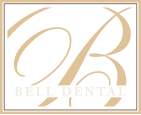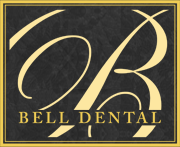Treating the Different Types of Tooth Discoloration
 Tooth discoloration can be categorized into one of two types: extrinsic or intrinsic. Though both types of discoloration are treatable, the type of treatment depends on the type of discoloration. Teeth whitening is suitable for extrinsic stains, while intrinsic discoloration often requires dental bonding or porcelain veneers. Read this overview from Lake Jackson dentists Brian K. Bell and Justin J. Crocker to learn about the different types of tooth discoloration.
Tooth discoloration can be categorized into one of two types: extrinsic or intrinsic. Though both types of discoloration are treatable, the type of treatment depends on the type of discoloration. Teeth whitening is suitable for extrinsic stains, while intrinsic discoloration often requires dental bonding or porcelain veneers. Read this overview from Lake Jackson dentists Brian K. Bell and Justin J. Crocker to learn about the different types of tooth discoloration.
Extrinsic vs. Intrinsic Tooth Discoloration
Tooth discoloration occurs for a number of reasons. The foods and drinks that we consume can stain the teeth. In addition, poor oral hygiene, smoking, and the aging process can result in tooth discoloration. Though tooth discoloration isn't preventable, our habits can lead to faster, more intense discoloration. Certain foods and drinks, like coffee and red wine, can discolor the teeth when consumed on a regular basis. Poor oral hygiene can also increase tooth discoloration by leaving plaque, bacteria, and food remnants on the teeth. Smoking is another major contributor to dental discoloration, leading to yellowed or brown colored teeth. Treating tooth discoloration begins with determining the type of staining. Dental discoloration is either extrinsic or intrinsic.
- Extrinsic Discoloration: Extrinsic discoloration is the most common type of dental staining. Extrinsic stains can be thought of as surface stains. This type of discoloration is generally recognized by an overall discoloration, sometimes darkest at the gum line. Extrinsic stains are typically caused by foods and drinks as well as smoking. Extrinsic stains usually respond well to teeth whitening treatments.
- Intrinsic Discoloration: Intrinsic stains are deep stains, which usually reach the inner dentin layer of the teeth. Intrinsic stains are recognized as spots of discoloration within the teeth or an individual tooth and is usually caused by injury, enamel erosion, disease, orthodontics, or medications. Because intrinsic stains are deep and irregular, they are harder to treat than extrinsic stains. Tooth whitening treatments don't work well on intrinsic stains. Porcelain veneers or dental bonding are more suitable treatments for intrinsic stains.
Prevention and Treatment
Despite the type of discoloration you suffer from, treatments are available to restore a bright, white smile. Extrinsic, surface stains are generally easily treated with professional teeth whitening. In cases of extreme extrinsic staining, whitening treatments may not be able to restore the desired whiteness. Porcelain veneers or dental bonding are a great alternative, as these dental restorations can be made in any shade of white. Porcelain veneers and dental bonding are also the preferred treatment of choice for intrinsic stains since this type of staining is generally too deep for whitening treatments. Of course, prevention is best when it comes tooth discoloration. You can help prevent tooth discoloration by following these tips:
- Practice proper oral hygiene: Brushing at least twice a day and flossing at least once a day, along with regular dental check-ups and cleanings, are key to keeping the teeth free of stains and disease.
- Avoid foods and drinks that increase discoloration: Regularly consuming deeply colored foods and drinks, like beets, coffee, and red wine, can stain the teeth. Avoid such foods to help keep your teeth looking their best.
- Drink with a straw: Reduce soda, wine, or coffee contact with your teeth by using a straw.
- Avoid smoking: Smoking and any tobacco use can severely, and quickly, stain the teeth a yellow or brown color. Avoid smoking and tobacco use to reduce the risk of tooth discoloration.
Find Out Which Treatment Is Right for You
Regain a bright, white smile. To find out which treatments are right for you, schedule a consultation with Drs. Bell and Crocker today!



